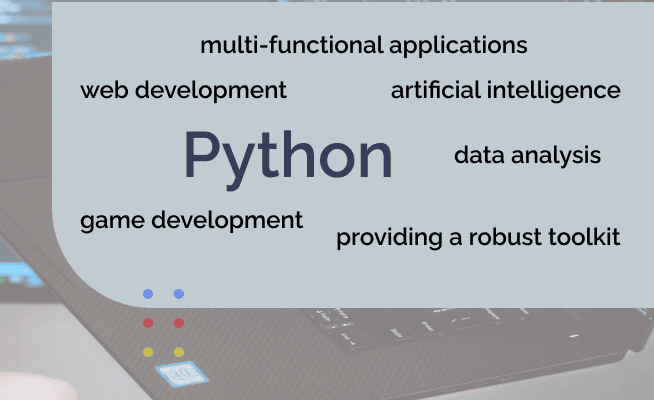The Power of Java App Development
Java is a versatile and robust programming language that has been a cornerstone of software development for decades. With its platform independence, scalability, and wide range of libraries and tools, Java remains a popular choice for building various types of applications, including web apps, mobile apps, and enterprise systems.
Benefits of Java App Development
One of the key advantages of using Java for app development is its portability. Java programs can run on any device that supports the Java Virtual Machine (JVM), making them platform-independent. This means that developers can write code once and deploy it across multiple platforms without the need for major modifications.
Java’s strong type system and extensive standard library also contribute to faster development cycles and increased productivity. Developers have access to a wealth of pre-built components and frameworks that streamline the development process and enable them to focus on building core functionality rather than reinventing the wheel.
Use Cases for Java Apps
Java is well-suited for a wide range of applications, from small utility programs to large-scale enterprise systems. Web developers often use Java to build dynamic web applications using frameworks like Spring or Hibernate. Mobile app developers leverage technologies such as Android Studio to create powerful Android applications in Java.
For enterprise solutions, Java’s scalability and reliability make it an ideal choice for building mission-critical systems that can handle high volumes of transactions securely. Banking systems, e-commerce platforms, and customer relationship management (CRM) software are just a few examples of the types of applications that benefit from Java’s robustness.
Conclusion
In conclusion, Java app development offers a powerful combination of versatility, performance, and reliability that makes it a top choice for developers across industries. Whether you are building a simple mobile app or a complex enterprise solution, Java provides the tools and capabilities you need to bring your ideas to life.
9 Essential Tips for Effective Java App Development
- Follow Java naming conventions for classes, methods, and variables.
- Use meaningful and descriptive names for classes, methods, and variables.
- Keep your code modular by breaking it into smaller functions or modules.
- Document your code using comments to improve readability and maintainability.
- Handle exceptions properly to ensure robust error handling in your application.
- Use design patterns like MVC or Singleton to organize your code effectively.
- Optimize your code for performance by minimizing unnecessary loops or operations.
- Test your code thoroughly using unit tests to catch bugs early in the development process.
- Regularly update libraries and dependencies to leverage new features and security fixes.
Follow Java naming conventions for classes, methods, and variables.
Following Java naming conventions for classes, methods, and variables is essential in ensuring code readability and maintainability. By adhering to these conventions, developers can create consistent and easy-to-understand code that is more accessible to other team members and future maintainers. Consistent naming practices also contribute to better code organization and help developers quickly identify the purpose and functionality of different components within the codebase. By following Java naming conventions, developers can enhance the overall quality of their Java applications and promote a standardized approach to software development.
Use meaningful and descriptive names for classes, methods, and variables.
When engaging in Java app development, it is crucial to use meaningful and descriptive names for classes, methods, and variables. Clear and concise naming not only enhances the readability of the code but also improves its maintainability and understandability. By choosing names that accurately reflect the purpose and functionality of each component, developers can facilitate collaboration, reduce errors, and make the codebase more accessible to others. Investing time in thoughtful naming conventions is a fundamental practice that contributes to the overall quality and efficiency of Java application development.
Keep your code modular by breaking it into smaller functions or modules.
To enhance the maintainability and readability of your Java applications, it is essential to keep your code modular by breaking it into smaller functions or modules. By dividing your code into manageable units, you not only improve code organization but also make it easier to debug and update in the future. Modular programming promotes reusability and scalability, allowing you to efficiently build and expand your Java applications while maintaining code clarity and efficiency.
Document your code using comments to improve readability and maintainability.
Documenting your code using comments is a crucial tip in Java app development to enhance readability and maintainability. By providing clear explanations within the code, developers can easily understand the purpose of different sections, functions, or variables. This practice not only aids in troubleshooting and debugging but also facilitates collaboration among team members by ensuring that the codebase remains comprehensible and well-documented for future reference and updates.
Handle exceptions properly to ensure robust error handling in your application.
Properly handling exceptions is crucial in Java app development to ensure robust error handling in your application. By implementing effective exception handling mechanisms, developers can anticipate and manage errors that may occur during the execution of their code. This practice not only enhances the reliability and stability of the application but also improves its overall quality by providing better user experience and making troubleshooting easier.
Use design patterns like MVC or Singleton to organize your code effectively.
When embarking on Java app development, utilizing design patterns such as Model-View-Controller (MVC) or Singleton can greatly enhance the organization and efficiency of your code. By implementing MVC, you can separate the presentation layer, business logic, and data access components of your application, leading to a more modular and maintainable codebase. Singleton pattern ensures that a class has only one instance and provides a global point of access to it, which can be beneficial for managing resources or controlling object creation. Incorporating these design patterns not only improves code structure but also promotes scalability and reusability in your Java applications.
Optimize your code for performance by minimizing unnecessary loops or operations.
To enhance the performance of your Java app development, it is crucial to optimize your code by minimizing unnecessary loops or operations. By streamlining your code and eliminating redundant processes, you can significantly improve the efficiency and speed of your application. This optimization not only enhances the user experience but also ensures that your app runs smoothly and responds quickly to user inputs.
Test your code thoroughly using unit tests to catch bugs early in the development process.
Testing your code thoroughly using unit tests is a crucial tip in Java app development. By writing and running unit tests, developers can identify and fix bugs early in the development process, ensuring that the code functions as intended. Unit tests help validate individual components of the codebase, improving its overall quality and reliability. By incorporating testing into the development workflow, developers can save time and effort by detecting issues before they escalate, ultimately leading to a more robust and stable application.
Regularly update libraries and dependencies to leverage new features and security fixes.
Regularly updating libraries and dependencies in your Java app development projects is crucial to staying current with the latest features and security fixes. By keeping your dependencies up-to-date, you can take advantage of new functionalities, performance enhancements, and bug fixes offered by library updates. Moreover, staying on top of security patches ensures that your application remains protected against potential vulnerabilities and threats. Embracing a proactive approach to updating libraries not only enhances the overall quality of your software but also contributes to a more secure and efficient development process.



